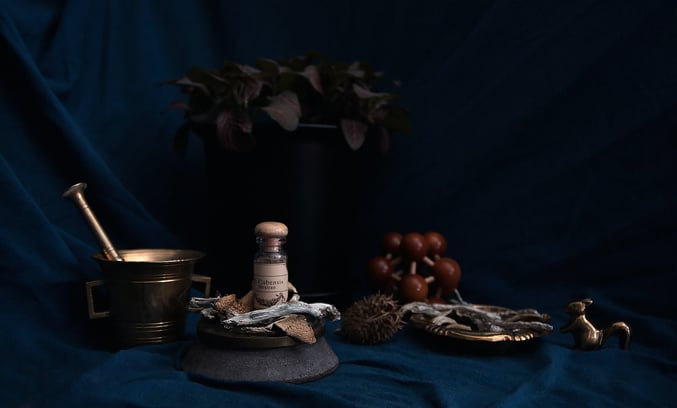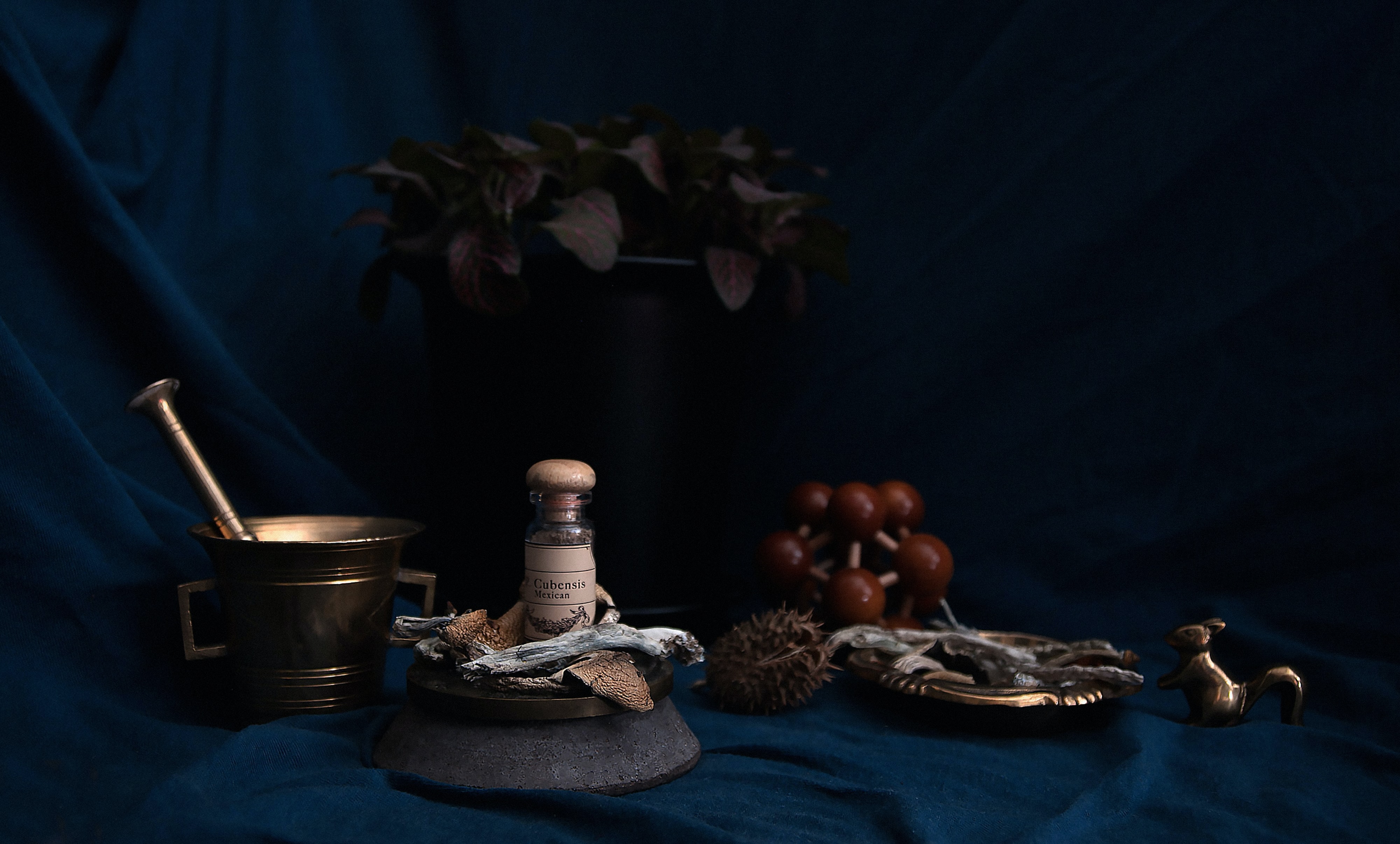Rather than actively chasing something, what if the antidote to our problems in the west was merely recalling what we’ve forgotten? Well, science is beginning to show that the psilocybin in mushrooms has some remarkable benefits when it comes to helping us heal. And as science progresses, more and more people are taking part in magic mushroom retreats to reap the profound benefits they provide. Steeped in tradition and respect, these ceremonial events provide the opportunity to work with a fungus that’s been medicine ever since we’ve walked the earth.
What is a Magic Mushroom Retreat?
Modern mushroom retreats offer a controlled and comfortable space where trained facilitators help willing participants prepare for, ingest, journey, and integrate a psilocybin experience.
Carried out in a sacred environment, mushroom retreats help facilitate the exploration of one’s own consciousness in a safe place. Based entirely around a healing experience, they provide participants with the divine right they all have to personal growth and to let go of what holds them back in life. Most retreats place a huge emphasis on integration, many of them offering several services and activities to help ensure that individuals can successfully apply what they’ve learned in ceremony to their real-life experience.

What to Expect at a Mushroom Retreat
When psilocybin, the active ingredient in magic mushrooms is ingested, the experiences encountered by retreat attendees are often among the most spiritually significant of their lives.
But aside from the actual journeying, there’s often a lot more organized during the retreat dates.
Additional Activities at a Psilocybin Retreat
Multi-day retreats will involve several magic mushroom ceremonies. To help with integration, other events and activities supplement the experience. Physical activities and walks in nature can both be very grounding during a mushroom retreat. In addition, yoga and meditation are often included as part of the package as are activities that reinforce the ritualistic aspect of the retreat. Movement and music are both important too, so dance, sound healing, and drum circles are all commonplace at this type of retreat.
Physical activities and walks in nature can both be very grounding during a mushroom retreat. In addition, yoga and meditation are often included as part of the package as are activities that reinforce the ritualistic aspect of the retreat. Movement and music are both important too, so dance, sound healing, and drum circles are all commonplace at this type of retreat.
Synergies Between Psilocybin and Other Plant Medicines
Other plant medicines exist which form potent synergies with psilocybin. These include:- cannabis
- rapé
- sananga
- cacao.
Ceremonies that involve the use of these medicines can often help potentiate the effects of psilocybin experiences, leading to even deeper insights and healing.
Psilocybin retreats ensure proper set and setting — something that refers to one’s mindset and the physical environment around them. The principal benefit of any established psychedelic retreat is the trained and experienced facilitators on hand. They help ensure both comfort and safety, and are generally well-versed in helping people through difficult situations.
The psilocybin experience isn’t always plain sailing though. And whether joyous or terrifying, it’s vital that experienced facilitators are on hand to hold a space where people can safely deal with what comes up for them.
Mushroom ceremonies often take place in comfortable modern surroundings. Because they grow everywhere naturally, few are aligned with strict traditional rituals as are common with other plant medicines. So if the mosquito-heavy Amazon isn’t in the cards for you, there are many other options!
Integration after a psilocybin mushroom retreat is vitally important, and this is where attending a retreat can be invaluable.
Many retreat centers will offer integration workshops in the days after the ceremony — something that can greatly help an individual process their experience.
The insights obtained are one thing, but decoding them and beginning to act out in new ways is quite another.
How Long do Mushroom Retreats Last For?
Mushroom retreats generally last from three to eight days, although day retreats also exist. They’re different from those involving plant medicines such as Ayahuasca, where repeated ceremonies can result in much greater openings. But with repeated psilocybin use, the brain quickly builds a tolerance that must be reset by allowing two to three days for the receptor sites to reset.
How Long Does a Mushroom Journey Last?
Mushroom journeys usually last between four to six hours. They are often much shorter than some of their plant medicine counterparts (Iboga lasting 12-36 hours, Huachuma lasting 6-14 hours, Ayahuasca lasting 4-8 hours). This is something that makes psilocybin attractive to many, especially researchers.
Although psilocybin mushrooms are short-lasting, they may still inhibit the ability to fall asleep once the effects wear off. A slightly altered state may still linger for some hours after the actual journey ends.
The intensity and duration of your journey will be dictated in part by the amount of mushrooms you ingest, and how much food is in your stomach. More food means slower absorption and slower onsets, but several tricks exist for improving bioavailability. 
By consuming magic mushrooms with something acidic such as lemon juice, it will help convert the psilocybin to the active compound psilocin. This results in a more immediate onset as soon as the psilocin crosses the blood-brain barrier.
Are Psilocybin Retreats Legal?
Possession of psilocybin mushrooms is legal in the following countries: Brazil, Netherlands, Austria, Bulgaria, Jamaica, and Samoa.
In more recent times, Denver, Colorado became the first US city to decriminalize psilocybin.
When it comes to sitting in psilocybin retreats, countries with traditionally liberal attitudes are the preferred option.
With this freedom, many retreat centers have grown to acquire a solid reputation. The three most common places where legal psilocybin retreats exist are Amsterdam in the Netherlands, Oaxaca in Mexico, as well as several locations in Jamaica around Kingston.
Legal Loopholes for Psilocybin Sse
Psilocybin is actually illegal in the Netherlands.
What people actually legally consume are psilocybin truffles — those underground psychoactive clumps formed out of mycelial strands. Psilocybin truffles came to the fore in 2008 when Dutch authorities banned mushrooms. This loophole in the law has enabled Amsterdam to become an important hub for Europeans looking for a legal psychedelic experience with well-versed facilitators.
In Jamaica, psilocybin has always been legal and the country has many well-known retreat centers. Psychedelic drugs are widely available and have never been made illegal by the Jamaican authorities. With Rastafarian roots, Jamaican culture has always harbored a close bond with the cannabis plant and those open attitudes also extend to psychedelics.
In Mexico, psilocybin is actually illegal, but exemptions do exist for sacramental and traditional use. Mushrooms played an important part in the lives of the indigenous populations in pre-Columbian Mexico, something that still continues to this day. After all, the country itself is home to the Psilocybe Mexicana mushroom, the one made famous by Albert Hoffman who was the first to isolate psilocybin from it in 1957.
How Does Psilocybin Act as a Medicine?
To our neolithic forefathers, psilocybin was a sacred medicine. The rituals and traditions that many retreat centers adhere to are an important part of any psychedelic experience. But what has puzzled modern scientists for years is just how psilocybin can elicit such profound changes in the brain.
Psilocybin is considered one of the least toxic drugs known. And while an extremely high dose may be a harrowing experience, it’s unlikely to leave any lasting negative effects. As a result, governmental organizations such as the FDA are beginning to change their tune around the substance.
The FDA have approved clinical trials to investigate the effects of psilocybin further and several studies are ongoing most notably at Johns Hopkins University. A comprehensive 2017 study carried out at South Dakota State University investigated how psilocybin can be harnessed to treat mental health conditions.
Researchers treated patients with issues around alcohol abuse, tobacco use, anxiety, and depression. While the results were positive in all cases, it was the fact that patients experienced long-term relief from symptoms that surprised researchers most.
How Psilocybin Acts on the Brain
Those bright lights that lead you on a journey of transcendence begin not long after psilocybin is converted to psilocin in the liver. And from there it makes its way across the blood-brain barrier.
With a chemical structure similar to that of the neurotransmitter serotonin, psilocin binds to the receptor and prevents its reuptake.
Psilocin then stimulates serotonin receptors that leads to neuronal nodes becoming much more interconnected. In effect, the default pathways of the brain are inhibited, while new robust connections allow the patient to view a given circumstance in a whole new light.
Deep psychic healing often occurs during the psilocybin experience. And fMRI scans show reduced blood flow in the amygdala, the oftentimes overactive emotional center that’s involved in conditions such as depression and anxiety. In the aforementioned study, scientists concluded that psilocybin ingestion can be likened to a ‘reset’ mechanism, where subsequent re-integration can lead to the resumption of normal functioning.
Where many pharmaceuticals dull and numb emotions to help people cope, psilocybin works on our serotonin system to heighten emotional responses. It encourages people to actively confront their issues, which can prompt enduring shifts in mindset.
How to Find the Right Mushroom Retreat
Once you decide upon a location, it’s always recommended to thoroughly research the available retreat centers.
Those listed on Retreat Guru will often be accompanied by the reviews from those who’ve sat in mushroom ceremonies before. Their experiences may be helpful in the decision-making process, and you should pay particular attention to any red flags they highlight.
It’s also recommended to reach out to the retreat center before booking. Have them answer your questions, and if something doesn’t feel right, then heed your intuition and look elsewhere.
Bear in mind that you’ll be asked to fill out an application form which usually contains questions around your medical history. It’s important to be completely transparent in your answers. Anyone who has suffered from psychosis or other similar mental health issues may be deemed unfit to work with the center.
Preparing for Your Retreat
With a retreat booked and a healthy understanding of what’s involved, it’s time to begin preparing yourself mentally, emotionally, and physically. Cleaning up your diet, detoxing, and investing extra time into any spiritual practice you may have is recommended.
Just as important is forming a solid intention before your psilocybin retreat. Connecting with your deeper self and listening to what exactly your body needs can be helpful.
You may not always get what you want from the experience... but as the saying goes, you’ll get what you need!
